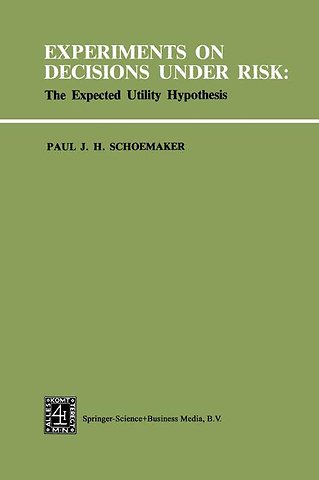Experiments on Decisions under Risk: The Expected Utility Hypothesis
Paperback Engels 2014 9789401750424Samenvatting
In this valuable book, Paul Schoemaker summarizes recent experimental and field research that he and others have undertaken regarding the descrip tive validity of expected utility theory as a model of choice under uncer tainty. His principal message is that this paradigm is too narrow in its con ception and misses some of the important elements of a descriptive model of individual choice. In particular, Schoemaker calls attention to the impor tance of individual differences, task effects, and context effects as they influence behavior. The expected utility hypothesis has come under scrutiny in recent years from a number of different quarters. This book brings together these many studies and relates them to the large body of literature on individual de cision making under risk. Although this paradigm may be appropriate for describing behavior under many conditions of uncertainty, Schoemaker presents convincing evidence that it does not do well with respect to protec tion against low-probability events. For example, he shows that the insur ance purchase decision is influenced by the way information is presented to the client, as well as by the statistical knowledge of the respondents.
Specificaties
Lezersrecensies
Inhoudsopgave
Anderen die dit kochten, kochten ook
Rubrieken
- advisering
- algemeen management
- coaching en trainen
- communicatie en media
- economie
- financieel management
- inkoop en logistiek
- internet en social media
- it-management / ict
- juridisch
- leiderschap
- marketing
- mens en maatschappij
- non-profit
- ondernemen
- organisatiekunde
- personal finance
- personeelsmanagement
- persoonlijke effectiviteit
- projectmanagement
- psychologie
- reclame en verkoop
- strategisch management
- verandermanagement
- werk en loopbaan






